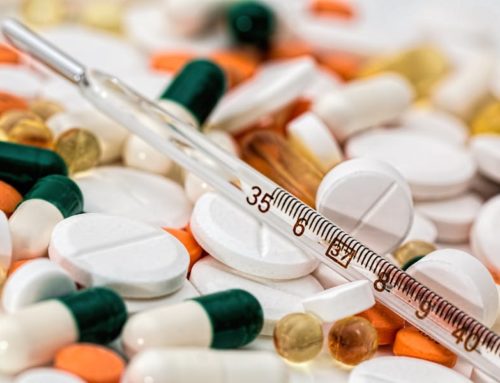The full moon has a unique link to nature — to animal mating habits, to the ocean tide, to certain plants’ pollination. For Australia’s Great Barrier Reef, the full moon every November is crucial. Beneath the full moon, more than 130 coral species spawn together.
It’s not only nature that answers the call of the full moon. Humans also have special responses. For centuries, scientists and naturalists alike have studied and hypothesized the moon’s effects on humankind. Horror films have leaned on certain full moon legends — from werewolves to increased violence amongst psychiatric patients.
There are twelve different full moons a year:
- January — Wolf Moon
- February — Snow Moon
- March — Worm Moon
- April — Pink Moon
- May — Flower Moon
- June — Strawberry Moon
- July — Buck Moon
- August — Sturgeon Moon
- September — Harvest Moon
- October — Blood Moon
- November — Frost Moon
- December — Cold Moon
Along with these twelve moons, there is also “supermoon” or “black moon.” A supermoon happens a few times each year, where that month’s moon is as much as 30 percent brighter or 14 percent bigger than usual. A black moon is a second new moon within one month.
Some people may be worried that something could be wrong with them during this time, when in actuality, it could have something to do with the full moon and how it is affecting their health. They may suddenly become crankier than usual or spend a restless night tossing and turning in bed.
Since this may be surprising news to you, it’s important to understand the effects of the full moon and how you can use this time for an efficient monthly detox.
Melatonin, Serotonin, and the Full Moon
The full moon has an interesting impact on hormones and chemical balance in the brain. Melatonin levels naturally drop every full moon. This impacts both sleep and immunity to make the immune system more vulnerable.
While melatonin naturally decreases, serotonin levels increase during the full moon. Low levels of serotonin are typically associated with anxiety, depression, and insomnia. But a sudden spike in normally healthy levels — like during a full moon — might also offset behavioral and mental states.
In addition, serotonin impacts parasitic behavior. Parasites have serotonin receptors just like people. An increase of serotonin during the full moon helps increase parasites’ mobility. Parasites can also use this neurotransmitter to communicate with each other.
To protect themselves, parasites try to decrease and subvert neurotransmitters that inhibit their activity. These alterations can change the way people think and feel.
Parasite Activity During the Full Moon
When many people hear the word “parasites,” they may think of traveling to uncharted and exotic destinations and coming back with unwanted critters. World travelers are frequently warned to watch what they eat and drink, depending on their location.
But parasites should not only be a concern when traveling. Parasites exist all around us. Anyone could pick up a parasite from cuddling pets, eating sushi, swimming in a lake, or walking barefoot outside.
The truth is everyone has parasites. But if immune systems are working properly, they can be removed naturally without the host noticing anything amiss.
Overtime, however, more and more parasites can build up in the body, especially for chronically ill individuals. And a full moon is the optimum time for parasites to increase their activity and wreak havoc in the body.
As already mentioned, melatonin levels decrease and serotonin levels increase in the body during a full moon. Since parasites thrive off serotonin, they become more active. While you may not have noticed this before, they may experience sudden symptoms spike around a full moon.
Emotional and mental health
While research has yet to find a direct association between the full moon and human behavior or mental health, many have given personal examples over the years. In one study, 81% of mental health workers shared anecdotal evidence of a connection between human illnesses and the full moon.
Researchers have also studied bipolar disorder and its link to the full moon. They found that during a full moon, people with bipolar disorder switched rapidly from depressive state to mania. The participants in the study synchronized with the lunar patterns, which impacted their sleep and their current symptoms.
Changes in emotional and mental health may be tied to the hormonal changes during the full moon, like melatonin and serotonin. Or, the root cause may not be the body but the parasites inhabiting inside the body. Since parasites become more active during this time, the body in turn will feel their effects more.
To survive, parasites need to inhibit the body’s essential functions. As part of this, researchers have found parasites can interfere with neurotransmitters like acetylcholine, dopamine, gamma-aminobutyric acid (GABA), and serotonin. All of these neurotransmitters impact essential areas, including mental health and mood.
For example, GABA calms the body and helps prevent anxiety. While it’s a calming agent for people, it paralyzes parasites. To protect themselves, parasites release chemicals to hinder GABA production. Low GABA levels can trigger anger, anxiety, depression, headaches, panic attacks, and more.
So why might you feel suddenly anxious, down, or irritable during a full moon? The answer could very well be parasitic infections.
Sleep and insomnia
Individuals have often reported disturbed sleep, less sleep, or a harder time falling asleep during a full moon. With a natural drop in melatonin, the quality of sleep may drop as well. (5)
In a study of 319 people in a sleeping center, researchers found a connection between the full moon and less deep sleep. With less deep sleep, you may feel fatigued or sluggish because they’re not able to recover.
Researchers also found an association with increased rapid-eye-movement (REM) latency. Those in the study took more time to reach REM during the full moon. REM, as you likely know, is important for memory and mood.
Much like emotional and mental states, parasites can also interfere with sleep. Since they are more active during the full moon, you may experience an uptake in parasite-related symptoms like stomach upset, which may keep them up at night.
Parasites can also alter neurotransmitters critical for sleep. For example, low levels of acetylcholine may lead to less REM sleep. This can contribute to fatigue, as well as learning and memory issues.
The Full Moon Challenge and Detox Tips
Since parasites are active during the full moon, it’s also an opportune time to detox them. The Full Moon Challenge is a monthly challenge, centered around the full moon, to cleanse parasites from the body.
Alongside potent parasite-killers like the three Para products, taking a binder like BioToxin Binder helps effectively remove these unwanted parasites and toxins from the body.
Other Natural Strategies
Besides taking botanicals or supplements, you can try and adjust your lifestyle. Proper diet, physical activity, and sleep can all support the body during a full moon.
Diet
Parasites depend on the body for nourishment, and their fuel of choice is sugar. Parasites love sugar. They thrive off of glucose-rich blood to function, which can trigger carb cravings.
So during a cleanse, you may want to avoid foods with high sugar content. Depriving parasites of their fuel source will help you clear them out more easily and lessen die-off symptoms. Check food labels and watch their sugar amount during this time.
Here’s some common high-sugar foods to avoid:
- Applesauce
- Bagels and muffins
- BBQ sauce
- Chocolate
- Dried fruit
- Flavored coffee
- Flavored oatmeal
- Frozen meals
- Fruit juice
- Ketchup
- Granola bars
- Jams
- Processed meats
- Protein bars
- Smoothies
- Sports drinks
Physical activity
Along with diet adjustments, certain physical activities may help you manage symptoms during a full moon. As mentioned earlier, individuals may experience emotional or mental upheaval every month with the full moon. Some mindful movement practices — like yoga — can support a balanced mood.
In one study, yoga helped participants raise GABA levels, which in turn, helped with their mood. Yoga may be an option to lessen stress and mental illness symptoms.
Physical movement can also support drainage, including the lymphatic system. When the body is draining well, it helps lessen uncomfortable detox symptoms or reabsorbing toxins in the body. Even something as simple as a walk can boost detox efforts.
You can get extra support on their lymphatic drainage system by taking LymphActiv, which incorporates Carbon Technology and a blend of natural ingredients with antioxidant-rich herbs to support normal immune function.
Sleep
The last essential area during the full moon — and detox — is sleep to help the body recover and support vital detox functions. Since sleep is often affected during a full moon, you may consider taking melatonin supplements to help fall asleep.
You can also practice good sleep hygiene habits like avoiding screens before bed or keeping to a consistent sleep schedule. Certain essential oils, like lavender, could also encourage healthy sleep.
Full Moon Health
The full moon is a monthly occurrence that can influence nature and your personal health. Its effect on chemicals like melatonin and serotonin may disrupt emotional and mental health, as well as sleep. The full moon can also help parasites increase their activity and wreak more havoc in the body.
If you’re ready to begin your detox journey, let’s book an appointment today to get you started on a healthier you.







